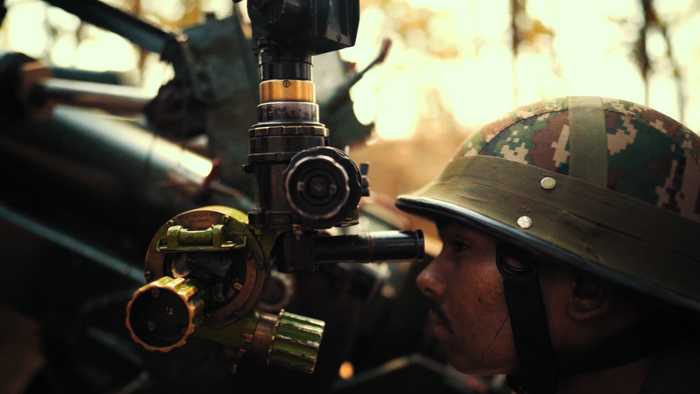Published 11:52 IST, September 3rd 2024
Army Sources Highlight Innovations in Supply Chain Under New Strategic Vision
The Indian Army is implementing a series of strategic initiatives to bolster its operational readiness.
- Defence
- 4 min read
New Delhi, India- The Indian Army has undertaken a series of strategic initiatives aimed at enhancing operational readiness, sustainability, and efficiency across its logistics and administrative functions. According to sources in the Army, these efforts are central to ensuring that the Army remains well-prepared and resource-efficient in the face of evolving challenges.
The Principal Staff Officer to the Chief of the Army Staff on all logistics matters, oversees a wide array of essential functions that ensure the seamless operation of the Army. These responsibilities include the planning and provisioning of land, accommodation, and environmental aspects for Army establishments, as well as the monitoring of transport, supply, and the procurement of fuel, oils, and lubricants. The officer also ensures the health and efficiency of all animals in the Army, the provisioning of canteen and postal services, and the functioning of the Pioneer Corps, which provides disciplined manpower for various Army needs.
Innovations in Logistics and Supply Chain Management
To maintain its operational edge, the Indian Army is focusing on enhancing the quality of rations and habitat for troops, absorbing new technologies, and optimizing the utilization of resources, including personnel, animals, and equipment. These efforts are crucial in ensuring the Army's combat readiness and sustainability, sources in the Army noted.

The Supplies and Transport Directorate is responsible for the meticulous planning and execution of the Army's supply chain operations. This includes the procurement and distribution of petroleum products, hygiene chemicals, and rations to all Armed Forces. According to Army sources, the Directorate has adopted several innovative measures to ensure quality assurance and efficiency. The Army has partnered with the Food Safety & Standards Authority of India (FSSAI) to leverage its network for quality assurance of rations.
The Army has also transitioned to using the Government e-Marketplace (GeM) platform for the procurement of rations, oils, and lubricants and has introduced GS-1 traceability to enhance trust and monitoring of supplies. In a significant move to improve training for Agniveers, driving simulation technology is being introduced at training centers.
Joint Logistics and Transition to Modern Transport
The success of Joint Logistics Nodes (JLN) in providing integrated logistics to all services has led to further expansion plans. New locations for JLN have been identified, and cross-staffing and training between the three services are underway to promote jointness in logistics, according to sources in the Army. The Army is also transitioning from traditional animal transport to modern trucks and all-terrain vehicles, particularly in mountainous terrains. The Remount and Veterinary Corps (RVC) is innovating by inducting and training various dog breeds, including indigenous ones, for specialized military roles such as explosive detection and search and rescue operations.

The Indian Army is also leading by example in adopting green and sustainable practices, sources highlighted. The introduction of electric buses, cars, and motorcycles into the Army's fleet, along with a partnership with Indian Oil Corporation Limited (IOCL) for Green Hydrogen Bus deployment, underscores the Army's commitment to reducing its carbon footprint. The Army is also collaborating with NTPC to set up a Green Hydrogen plant to power military garrisons in remote areas like Chushul and Leh.
Military stations and cantonments, traditionally the green lungs of the nation, are being further enhanced through initiatives like the Apashisth Mukt Sainya Abhiyan (AMSA), which aims to achieve landfill-free Army stations. Solar energy projects and the adoption of green building norms, such as those in the upcoming Thal Sena Bhawan, further highlight the Army's dedication to environmental sustainability.
Empowering Women and Promoting Indigenous Practices
The Indian Army continues to make significant strides in women empowerment, with the commissioning of women veterinary officers into forward areas and the appointment of women officers in senior leadership positions within the Army Postal Services. Additionally, the Army has been a strong proponent of indigenous practices, as evidenced by the introduction of millet-based rations during the International Year of the Millets, in collaboration with the Defence Food Research Laboratory (DFRL) and FSSAI.
The Indian Army is taking proactive steps to enhance its all-round capability and capacity. Quality assurance, timely delivery, technology absorption, and the adaptation of best practices are the guiding principles driving these initiatives. According to sources in the Army, these efforts are setting new benchmarks in military logistics and administration, reinforcing the Army's role as a key pillar of national security and development.
Updated 11:52 IST, September 3rd 2024